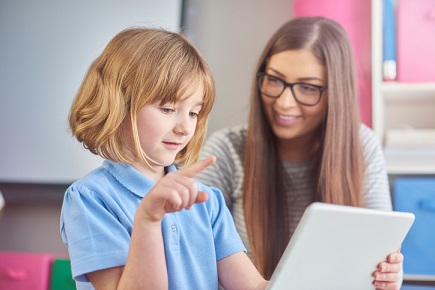
The Federal Government recently announced that it is funding a study to find out how digital technology is really affecting Australian children.
However, the research – which will provide recommendations to policymakers as well as guidelines for educators and parents – is yet to begin and could take years before the study wraps up.
In the meantime, it is no easy feat for adults to keep children from using gadgets or the internet as society is becoming increasingly dependent on technology.
In 2017, with the aim of helping children develop safe and responsible online habits, the Federal Government partnered with the University of Sydney to boost digital literacy in schools.
Another motivating factor inherent in this initiative is the growth of STEM indistires and research that shows the future workforce will demand that its employees demonstrate high levels of digital literacy.
However, as the use of technology increases, so do the parallel risks posed by lax digital security and increasingly complex cyberthreats.
Cyberbullying, too, is on the rise.
In 2018, schools were encouraged to monitor their students’ online behaviours in a bid to deter cyberbullying and the mental health issues that come with it.
However, keeping too watchful an eye has its own issues. Luckily, the Office of the eSafety Commissioner recently announced it is developing a new program to improve students’ online safety.
The Office said its eSafety Early Years project will provide a series of resources – expected to be available in 2020 – to ensure children can safely use technology.
“They are learning about online behaviours, before they are even online themselves, from the adults who care for them, and their siblings and friends. And these behaviours might not always be ones that will keep them safe online,” the Office said.
The program will run in collaboration with Early Childhood Australia and Australian Catholic University’s Professor Susan Edwards, who also serves as the director of Early Childhood Future.
The Office will also team up with ABC Children and Play School for another project that will kick off next year.
Basic guidelines
Ahead of the eSafety Early Years project’s launch, the Office of eSafety gave out a quick guide about what educators and parents can do to help children establish good online habits:
- Adults should tell their children that they should only engage with people they know when they are online. Likewise, parental controls should be used to ensure the protection of children’s digital footprints.
- Conversations should also help children develop critical thinking skills to help them make good choices when looking up content online.
- Children should be reminded to stay polite and courteous when online.
- Children should also be encouraged to seek help from an adult if they come across something unfamiliar or they see something that made them feel uncomfortable.
- Set limits: adults to manage how long children should use their gadgets and where they can only use it.


